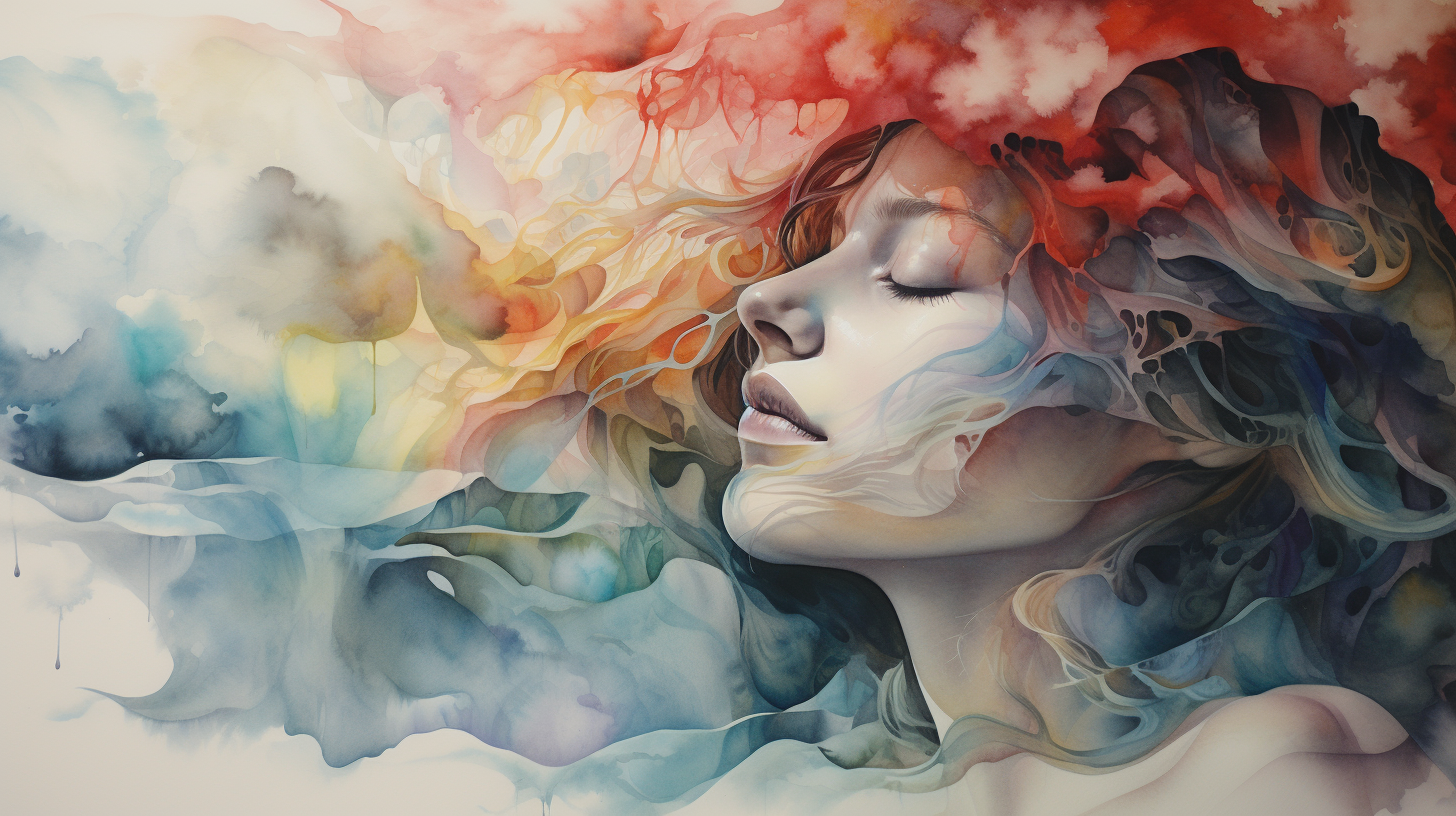What does dreaming about a hallucination mean?
Dreaming about a hallucination can feel startling and surreal, as if the boundaries between dream and waking life have blurred. Such a dream often reflects experiences of confusion or heightened emotional states. Your subconscious may be signalling that something in your life feels unstable or out of reach. When you vividly imagine something unreal, your mind might be grappling with uncertainty, stress, or a situation that appears deceptive or illusory.
A hallucination in a dream can symbolize the way you perceive reality. Perhaps you are questioning the truth of a situation or doubting your own instincts. The dream invites you to examine whether you are seeing things clearly or projecting fears onto your surroundings. It may also suggest that you feel overwhelmed by thoughts or emotions that seem very real, even though they might not align with what is actually happening.
These dreams sometimes arise when you are processing intense sensory or emotional input. Your brain may weave fragments of recent experiences, memories, or worries into lifelike scenes that mimic hallucinations. In this way, dreaming about hallucinations can be less about actual mental health issues and more about your mind working through events or feelings that are confusing or disorienting.
Dreaming of hallucinating could also indicate that you are reaching for insight or meaning that lies beneath the surface. A hallucination in a dream may reveal hidden desires, worries, or creative impulses bubbling up into consciousness. Recognising that the experience was a dream hallucination can lead to deeper self‑awareness, as you begin to notice what your mind presents when you are truly listening to yourself.
Common scenarios involving a hallucination and their meaning
One common scenario is dreaming that you see images or people who aren’t there. This may reflect feelings of loneliness, nostalgia, or unresolved relationships. Seeing someone you miss might indicate that your subconscious is urging you to reconnect or find closure.
Another scenario involves hearing sounds or voices that don’t exist. In a dream, these can echo internal dialogues or anxieties. You might be replaying conversations or thoughts you have not fully processed. The voice could embody a part of you that is trying to be heard, possibly expressing needs or fears you have been ignoring.
Some people dream of objects that repeatedly change form or shape. These shifting images may point to instability in your life. You could be going through transitions that feel uncertain, or you may question whether what appears real is reliable. The dream surfaces this ambiguity so you can explore it consciously.
Dreams involving hallucinations of danger can be particularly intense. Seeing a threat that disappears or turns out to be nothing can symbolise anxiety or fear that looms larger in your mind than it does in reality. Your dream could be encouraging you to confront such fears, helping you to distinguish between what truly matters and what your mind exaggerates.
Occasionally you may dream that your body is hallucinating—your limbs change shape, you feel disconnected, or your reflection shifts. These sensations often highlight feelings of disassociation or vulnerability. You may be processing experiences that made you feel less grounded or secure, and your dream is showing you how those feelings manifest at a deeper level.
In more creative or positive dreams, hallucinations can feel magical or mystical. Floating lights, unusual colours, or shapes may carry messages or feelings of wonder. These kinds of hallucinations in dreams might signal heightened intuition or spiritual sensitivity, especially when the mood is curious rather than fearful.
What is the spiritual meaning?
From a spiritual perspective, hallucination dreams may be interpreted as invitations to explore the unseen realms of consciousness. Such dreams often occur during times when you are expanding your awareness or transitioning between levels of perception. Your dream may be guiding you to pay attention to intuitive messages or spiritual nudges that usually go unnoticed.
When hallucinations in dreams are vivid and profound, they may represent spiritual awakening or a heightened connection to your inner guidance. You might be receiving symbolic visions or metaphorical messages through images that feel unreal yet emotionally resonant. These dreams can be rich with personal symbolism, encouraging you to listen to your inner wisdom.
On the other hand, hallucination dreams that feel chaotic or frightening can indicate spiritual imbalance or the need for grounding. They may remind you to create space for stillness and self‑care, to reconnect with the body and the present moment. The dream could be encouraging you to seek clarity and stability before moving forward.
Visually or auditorily hallucinatory dreams can also point to spiritual cleansing, as if your energy field is shifting and releasing old patterns. The imagery may seem unsettling, but it can be part of a process of purification and spiritual recalibration. Paying attention to the details—shapes, colours, sounds—can reveal much about the soul’s journey in that phase.
In some traditions, hallucination experiences within dreams are seen as thresholds to the spirit world. They may indicate that you are tuning into energies or entities that exist outside ordinary perception. This isn’t inherently alarming; rather, your dream is showing you how vast your inner landscape truly is. It invites a deeper trust in your intuitive senses.
The importance of recording your dreams
Recording your dreams is a powerful way to understand symbolic hallucinations more deeply. Writing down what you experienced, how it felt, and what thoughts emerged afterwards helps you uncover recurring themes, hidden fears, or intuitive insights. This practice strengthens your ability to interpret and integrate the wisdom your subconscious offers.



